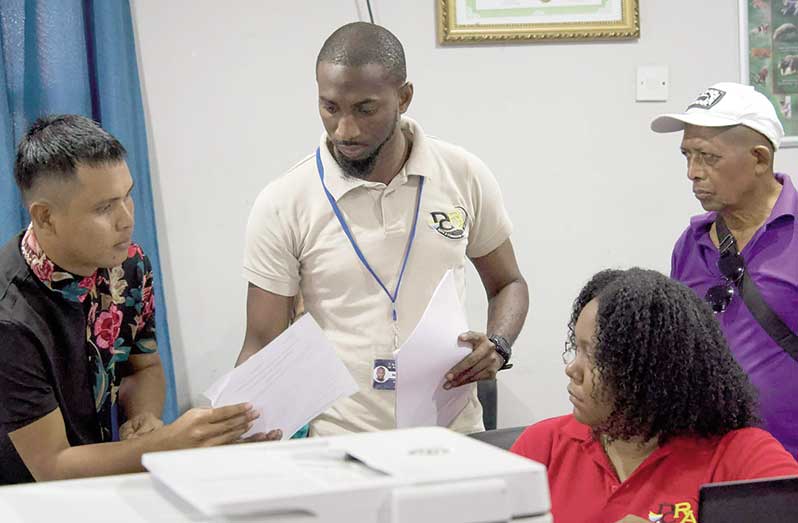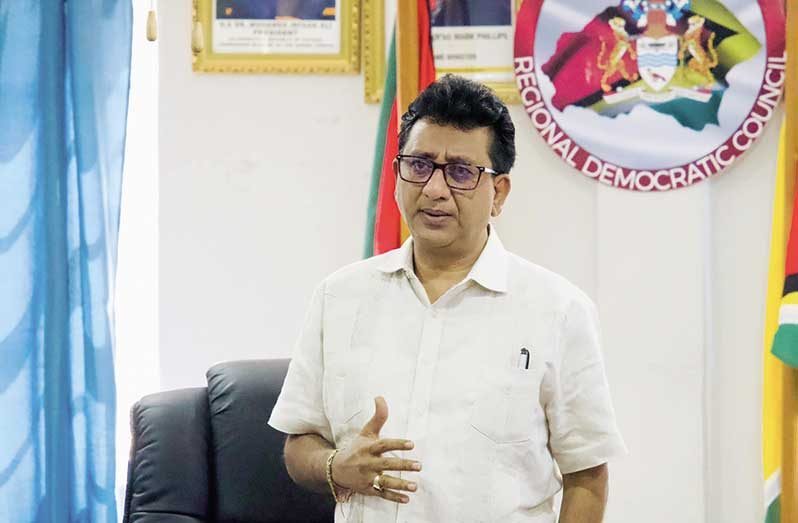A PROMISE made by President, Dr Irfaan Ali is about to reshape Mabaruma, with the Deeds and Commercial Registries Authority (DCRA) set to establish a permanent office in Region One, bringing essential legal and commercial services directly to the community.
This move was disclosed on Monday during a public outreach programme led by the Attorney General’s Chambers and the Ministry of Legal Affairs, which aimed to deliver critical services to residents of the region.
“A permanent office of the Deeds and Commercial Registries Authority will be established in the Office of the Regional Democratic Council, so that residents of the region can continue to benefit from the crucial services provided by this important agency,” a post on the official Facebook account of Attorney-General and Minister of Legal Affairs, Anil Nandlall, said on Monday.
Established under the Deeds Registry Act Chapter 5:01, the DCRA operates under the Ministry of Legal Affairs.

The Deeds Registry is crucial in the country’s legal framework, particularly for property transactions. It serves as the official repository for property-ownership documents, essential for verifying the legality of property transfers. This function is indispensable for both sellers and buyers during property transactions.
The Deeds Registry’s primary mission is to efficiently manage laws related to land transactions, including transports, leases, and mortgages. It also handles powers of attorney, contracts, and various other deeds, ensuring legal compliance and protection of property rights.
The Commercial Registry, tasked with administering laws related to companies, business names, and intellectual property, aims to provide accessible and responsive services. It supports the legal framework for corporate activities, ensuring proper administration of related laws.
Attorney-General and Minister of Legal Affairs, Anil Nandlall, had previously underscored the importance of the DCRA’s services in supporting Guyana’s economic modernisation.
“We have to recognise that we have to train our people. At the end of the day, we have to ensure that you are qualified. We can’t force people to hire unqualified individuals,” Nandlall had said, highlighting the need for local capacity-building.
Guyana has experienced a significant increase in business and company incorporations over the past four years.
In 2020, 6,633 businesses were incorporated, rising to 22,606 by the end of 2023.
Similarly, company incorporations increased from 791 in 2020 to 1,448 in 2023, reflecting the country’s growing entrepreneurial spirit and economic expansion.
The government has made substantial investments in industrial estates and small business development.
In 2023, $1.2 billion was spent on industrial development, with an additional $3.3 billion allocated for 2024.
Financial initiatives, such as the Small Business Development Fund and the Small Business Bureau, with allocations of $450 million and $331 million respectively for 2024, support loans, grants, and entrepreneurship training.
Training programmes have also been prioritised, with over 3,500 small business owners receiving training in 2023.
An additional 2,800 business owners are expected to benefit from specialised training in 2024, aimed at enhancing entrepreneurial activity and village economies.
The government has introduced measures to streamline trade processes and enhance facilitation, including the Electronic Single Window for Trade Transactions and the construction of the National Quality Infrastructure Laboratory and the Food and Drugs Laboratory.
These projects, with a combined budgetary allocation exceeding $2 billion, are designed to improve trade efficiency and support small businesses.
In addition, progressive tax reforms have increased the income tax threshold to $100,000 monthly in 2024, exempting 13,000 individuals from income taxes and boosting workers’ disposable income by $4.8 billion.
These measures are projected to inject over $70 billion into the economy, mitigating inflation, supporting vulnerable populations, and driving job creation.
As such, the establishment of the DCRA office in Region One marks a significant step, since it not only enhances access to essential legal and commercial services, but it also promotes economic growth and empowerment for the residents of Region One.



.jpg)











